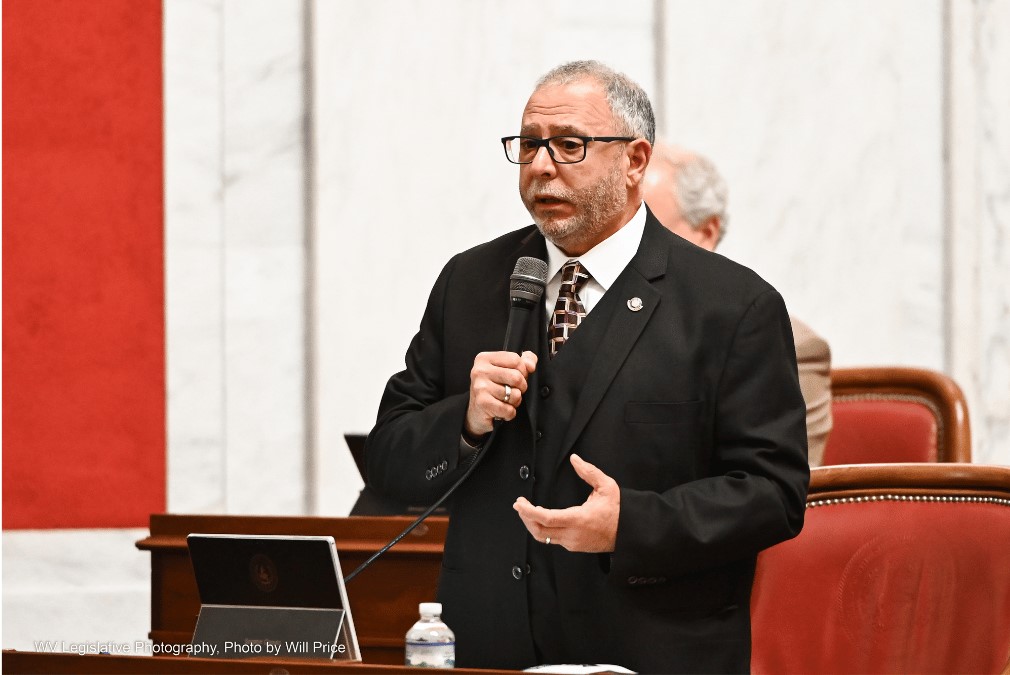Senate Bill 59 makes several changes to the system of unemployment benefits in the state.
Sen. Tom Takubo, R-Kanawha, is the lead sponsor of the bill. He says the bill aims to help target benefits fraud that saw a spike during the COVID-19 pandemic.
“For example, I got contacted that I had filed for unemployment and all these benefits were kicking in. Obviously having been a pulmonary physician during 2020- 2021, it’s the busiest I’ve ever been,” he said. “But it’s outside entities, it’s foreign governments trying to get in, break into our system, computer hackers. So there’s always going to be more fraud. What this does is gives more latitude to us as a workforce development state to be able to defend against those fraudulent activities.”
Takubo also said the bill aims to alleviate the burden of the unemployment tax on the state’s businesses.
“Everybody thinks of a big corporation when you think of employers but in West Virginia, over 90 percent of the employment is small businesses, and those small businesses are having to pay a very high tax levied to pay for unemployment,” Takubo said.
He said the bill ultimately aims to modernize the state’s unemployment laws to reflect the modern workforce and work environment and try to help more people get back to work.
“What we believe we can use this bill for is to help match jobs that are good jobs for people looking for those, and improve our workforce participation,” Takubo said. “We’re still the worst in the country. Part of that may be that they’re having more difficulty, so this bill will address some of that.”
If passed, the bill would require a job search, with the help of Workforce West Virginia, as a condition of receiving unemployment benefits. If a recipient of unemployment refuses the offer of what the bill calls a “suitable” job, their benefits could be reduced.
Takubo said the bill isn’t intended to penalize anyone.
“We’re not trying to pass legislation that guarantees you the perfect job,” he said. “What we are trying to do is get people back into the workforce because we do believe that one job will springboard to the next, to the next to get you to what you feel suitable, and what you enjoy doing for a living.”
The bill also reducess the maximum number of weeks applicants can receive unemployment benefits from 26 weeks to 20.
Sen. Mike Caputo, R-Marion, voiced his opposition to the changes during discussion of the bill on the Senate floor. He drew from his own experience of being on unemployment, and said the changes Senate Bill 59 makes are too harsh on workers.
“When things got a little slow in the mining industry, and myself and my friends got laid off, we wanted to go back to work, we wanted to go back to work desperately, but sometimes things just weren’t available to us,” he said. “There was a time when folks were laid off for years. Sometimes things get extremely tough, and sometimes 26 weeks is not enough. But I’ll tell you what I do know, I do know that 12 is not enough. And I do know that 20 is not enough when you’re trying to pay the light bill.”
Caputo also questioned why the government had no issue helping corporations, but couldn’t do the same for workers.
“We hand out things to corporations all the time, and I’m supportive of that, because we believe it brings jobs to West Virginia, and we all want people to succeed and have good employment, and we hand it out constantly,” he said. “But when it comes to workers, it seems like it’s a constant beat down. I just don’t get it.”
Takubo said Senate Bill 59 is just one tool in the state’s toolbox to address workforce issues, and they are always looking for more.
“We’re trying to look at all facets to help as many West Virginians as we possibly can. And so one thing I would say is legislators are all ears,” he said. “What we need is all the help we can get. So anybody out there that has ideas that maybe would help us with this, or any piece of legislation, please let us know.”
The bill will head over to the House of Delegates for consideration.






















